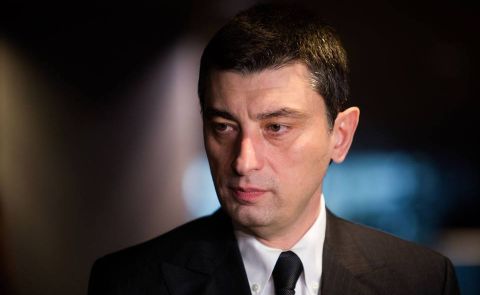
Kadyrov urged Ingush people not to bring to turmoil, as in Kazakhstan

The head of Chechnya, Ramzan Kadyrov, called on the Ingush people to stop "provocateurs who talk about illegally confiscated lands." The statement was made at a meeting of the organising committee to celebrate the centenary of Chechen autonomy.
“We have almost one language, one religion, stop those who write all this. If they are not stopped now, it will develop into great confusion,” Kadyrov warned.
Kadyrov cited as an example the events in Kazakhstan, which, in his opinion, were driven to by "provocations and gossip."
He does not consider the activists who are upsetting the land issue as men.
"I will take the rest of the villages because you will not calm down until I do this," said the head of Chechnya.
Kadyrov called on Ingushetia as early as November last year to calm down the “handful of nationalists.” According to him, the issue of the administrative border between Ingushetia and Chechnya has been closed forever.
“I called on the fraternal people to stop a handful of provocateurs who are trying to play the nationalist card. Moreover, this issue has been closed once and for all and fully complies with the letter of the law,” Kadyrov said.
He said that the lands were "illegally transferred" by Dzhokhar Dudayev to Ingushetia in the early 1990s. “If you don’t calm down,” Kadyrov said, "I will take away everything that Dudayev illegally transferred."
“We have the strength to take it all back, despite this, we did not take a single step, did not say a single word,” stressed the head of Chechnya.
Protests were held in Ingushetia against the agreement on the border between Ingushetia and Chechnya adopted in the fall of 2018, according to which part of the Ingush territory came under the control of Grozny. At a rally in Magas on March 26-27, 2019, against the transfer of borderlands to Chechnya, protesters clashed with the police. 30 activists were arrested for resisting the police. Sentences, in this case, were passed on seven instigators of protests at the end of 2021, all receiving sentences ranging from 7.5 to 9 years.
See Also


Russia Begins 24/7 Radiation Monitoring in Dagestan After Iranian Nuclear Incident

How Do Caucasus States React to Israel-Iran War?

Weekly Brief on Military Situation in the South Caucasus (9–15 June 2025)

Former Georgian PM Gakharia to Face Prosecution

